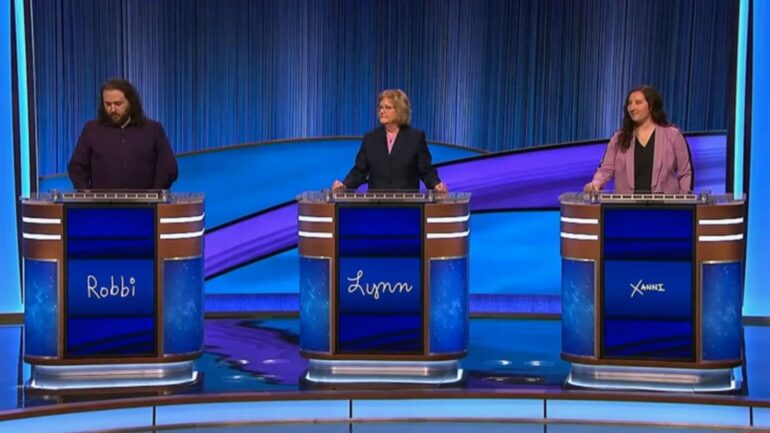As one of the most beloved quiz shows in television history, “Jeopardy!” has a storied legacy that continues to captivate audiences. With its unique format that challenges contestants to respond in the form of a question, “Jeopardy!” has not only entertained millions but also sparked intellectual curiosity across generations. However, as the landscape of television evolves, so too must “Jeopardy!” adapt to meet the changing demands of its audience. This article explores the potential future of “Jeopardy!” by examining upcoming innovations, technological advancements, and shifts in audience engagement.
Historical Context: The Legacy of Jeopardy!
First aired in 1964, “Jeopardy!” has become synonymous with trivia and intellectual challenge. The show’s unique format, created by Merv Griffin, has evolved over the years while maintaining its core principles. The iconic role of host, most famously filled by Alex Trebek from 1984 until his passing in 2020, has greatly shaped the program’s identity. The show has won numerous awards and has been praised for its educational value, making it a staple of American television.
Current Innovations: Keeping Up with the Times
To maintain relevance in an increasingly competitive entertainment landscape, “Jeopardy!” has already begun implementing several innovations:
- Digital Integration: The introduction of mobile apps and online platforms has allowed fans to engage with “Jeopardy!” beyond traditional television. This digital shift has enabled viewers to practice their trivia skills and engage with the show’s content in real-time.
- Special Tournaments: Events like the “Greatest of All Time” tournament in 2020 showcased the show’s ability to generate excitement and draw in viewers, tapping into nostalgia while appealing to a new audience.
- Diverse Hosting Choices: Following Trebek’s passing, the show introduced a rotating cast of guest hosts, showcasing a range of personalities and backgrounds, which has helped attract new viewers.
Technological Innovations on the Horizon

The future of “Jeopardy!” is likely to be influenced by several technological advancements that can enhance viewer engagement and contestant experience:
1. Artificial Intelligence and Machine Learning
As AI technology continues to evolve, it could play a significant role in shaping the future of “Jeopardy!” Here are some potential applications:
- Smart Question Generation: AI could analyze viewer preferences and historical data to generate tailored questions, creating a more personalized experience for contestants and audiences alike.
- Real-time Analysis: Machine learning algorithms may help in providing real-time insights into contestants’ performance, offering viewers a deeper understanding of strategies and knowledge bases.
- Enhanced Accessibility: AI could be used to develop features for hearing-impaired or visually impaired audiences, ensuring that “Jeopardy!” remains accessible to all.
2. Augmented Reality (AR) and Virtual Reality (VR)
AR and VR technologies have the potential to revolutionize how audiences interact with “Jeopardy!”:
- Immersive Viewing Experiences: By leveraging VR, fans could participate in a virtual “Jeopardy!” set, experiencing the game as if they were contestants themselves.
- AR Enhancements: Imagine using AR glasses to see additional trivia, historical context, or contestant backgrounds while watching the show, enriching the viewing experience.
3. Interactive and Gamified Elements
As audiences seek more interactive experiences, gamification could play a significant role in the future of “Jeopardy!”:
- Audience Participation: Integrating live audience participation through apps could allow viewers to answer questions in real-time, creating a more engaging experience.
- Social Media Integration: Utilizing platforms like Twitter and Instagram for trivia challenges and polls could enhance viewer engagement and create a sense of community.
Shifts in Audience Engagement
As the demographics of television audiences evolve, “Jeopardy!” must adapt to attract younger viewers while retaining its loyal fanbase:
1. Embracing Diversity
In a world that increasingly values inclusivity, “Jeopardy!” has the opportunity to diversify its contestant pool:
- Outreach Programs: Initiatives to encourage participation from underrepresented communities can help broaden the show’s appeal.
- Highlighting Diverse Knowledge: Incorporating questions and categories that reflect a wider range of cultures and experiences can make the show more relatable to a diverse audience.
2. Collaborations and Crossovers

Collaborating with popular media franchises or personalities can help “Jeopardy!” reach new audiences:
- Celebrity Episodes: Featuring stars from current popular shows or movies could draw their fanbases to “Jeopardy!” and introduce them to its unique format.
- Crossover Events: Partnering with other popular game shows or reality programs could create buzz and expand viewership.
Case Studies: Successful Innovations in Television
To better understand how “Jeopardy!” can implement innovations, we can look at case studies of other successful television programs that have adapted to changing audiences:
The Voice

This singing competition has successfully integrated audience voting via mobile apps, allowing viewers to influence the outcome of performances in real-time. The show’s ability to blend traditional talent competition with modern technology has kept it relevant and engaging.
Who Wants to Be a Millionaire

With its initial success, the show introduced various formats and special events, such as “Celebrity Edition,” which attracted new viewers. The use of social media for trivia games and viewer interaction has kept the audience engaged between episodes.
Conclusion: A Bright Future Ahead for Jeopardy!
The future of “Jeopardy!” is ripe with possibilities as it navigates a rapidly changing media landscape. By embracing technological advancements, diversifying its audience, and exploring innovative formats, “Jeopardy!” can continue to hold its place as a cultural touchstone. The show’s legacy is built on intellectual challenge and curiosity, and by adapting to the needs and desires of its viewers, “Jeopardy!” can ensure that it remains a staple of American television for generations to come.
As we look ahead, it is clear that the essence of “Jeopardy!”—its commitment to knowledge and learning—will remain at its core. With new technologies and strategies, the show has the potential to not only entertain but also inspire future generations of trivia enthusiasts. The challenge will be to balance innovation with tradition, ensuring that the spirit of “Jeopardy!” endures in an ever-evolving world.